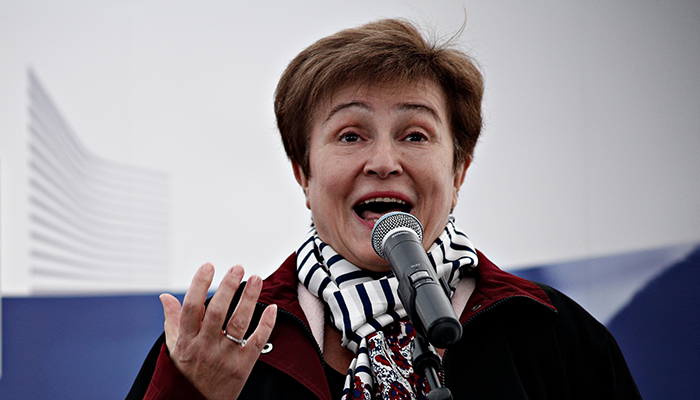web_kristalina-georgieva_shutterstock_1078647266.png

Kristalina Georgieva
Many governments have already taken significant steps, with major measures being announced on a daily basis—including Sunday’s bold, coordinated moves on monetary policy.
But clearly, even more needs to be done. As the virus spreads, increased coordinated action will be key to boosting confidence and providing stability to the global economy.“The case for a coordinated and synchronized global fiscal stimulus is becoming stronger by the hour.”
Three actions for the global economy
Fiscal
Additional fiscal stimulus will be necessary to prevent long-lasting economic damage.
Fiscal measures already announced are being deployed on a range of policies that immediately prioritise health spending and those in need. We know that comprehensive containment measures—combined with early monitoring—will slow the rate of infection and the spread of the virus.
Governments should continue and expand these efforts to reach the most-affected people and businesses—with policies including increased paid sick leave and targeted tax relief.
Beyond these positive individual country actions, as the virus spreads, the case for a coordinated and synchronised global fiscal stimulus is becoming stronger by the hour.
During the Global Financial Crisis (GFC), for example, fiscal stimulus by the G20 amounted to about 2% of GDP, or over $900bn in today’s money, in 2009 alone. So, there is a lot more work to do.
Monetary policy
In advanced economies, central banks should continue to support demand and boost confidence by easing financial conditions and ensuring the flow of credit to the real economy. For example, the US Federal Reserve just announced further interest rate cuts, asset purchases, forward guidance and a drop in reserve requirements.
“This crisis will stress test whether the changes made in the wake of the financial crisis will serve their purpose”
Policy steps that we know have worked before—including during the GFC—are on the table. On Sunday, major central banks took decisive coordinated action to ease swap lines and thus lessen global financial market stresses.
Going forward, there may be a need for swap lines to emerging market economies.
As the Institute for International Finance said last week, investors have removed nearly $42bn from emerging markets since the beginning of the crisis. This is the largest outflow they have ever recorded.
So central banks’ policy action in emerging-market and developing economies will need to balance the especially difficult challenge of addressing capital flow reversals and commodity shocks. In times of crisis such as at present, foreign exchange interventions and capital flow management measures can usefully complement interest rate and other monetary policy actions.
Regulatory response
Financial system supervisors should aim to maintain the balance between preserving financial stability, maintaining banking system soundness and sustaining economic activity.
This crisis will stress test whether the changes made in the wake of the financial crisis will serve their purpose.
Banks should be encouraged to use flexibility in existing regulations, for example by using their capital and liquidity buffers, and undertake renegotiation of loan terms for stressed borrowers. Risk disclosure and clear communication of supervisory expectations will also be essential for markets to function properly in the period ahead.
All this work—from monetary to fiscal to regulatory—is most effective when done cooperatively.
Indeed, IMF staff research shows that changes in spending, for example, have a multiplier effect when countries act together.
This article first appeared on the IMF website.












